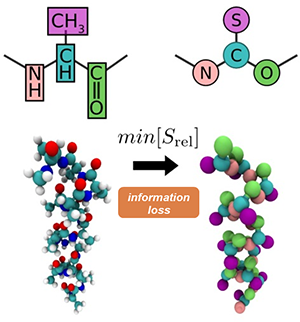Complex materials and chemical interfaces serve as the basis for nearly all modern technologies. Our faculty and research groups study how the synthesis, processing and properties of these systems can be used to engineer products and devices with well-controlled or novel performance for a variety of applications. A fundamental goal that pervades our work is to understand the interplay between molecular chemistry and multi-scale structure to design materials and interfaces, and the processes used to prepare them.
Research Themes:
Molecular Thermodynamics
Molecular thermodynamics of soft and biological materials, such as bioinspired polymers; phenomena in flowing polymer solutions and blends; self-assembly and self-organization in synthetic peptides; and nanoparticles as therapeutic drug delivery agents

Kinetic phenomena
Rare events, catalysis, nucleation, and growth phenomena, such as chemical reaction kinetics, nucleation kinetics, and catalysis in various contexts; crystal engineering for pharmaceutical product/process design; nucleation processes in hydrates and water; metal nanopartical synthesis; nucleation of ordered block copolymers
transport & interfaces
Thermodynamics and transport at interfaces, such as thermodynamics to delineate intrinsic scaling laws in systems, from batteries to colloidal suspensions to membranes; stability of surface nanobubbles; force-distance relationship for the hydrophic interaction; surface force apparatus experiments; force between surfaces separated by nanostructured complex fluids
systems engineering
Process synthesis and chemical process systems with applications in organic specialty chemical, pharmaceuticals, organic semiconductors, and battery manufacturing
multiscale SIMULATIONS
Coarse-grained models of complex molecular systems; coarse-graining of polymer field theories; molecular simulations of fluid flow; mapping field theories; rare events methods for investigating long time-scale events



